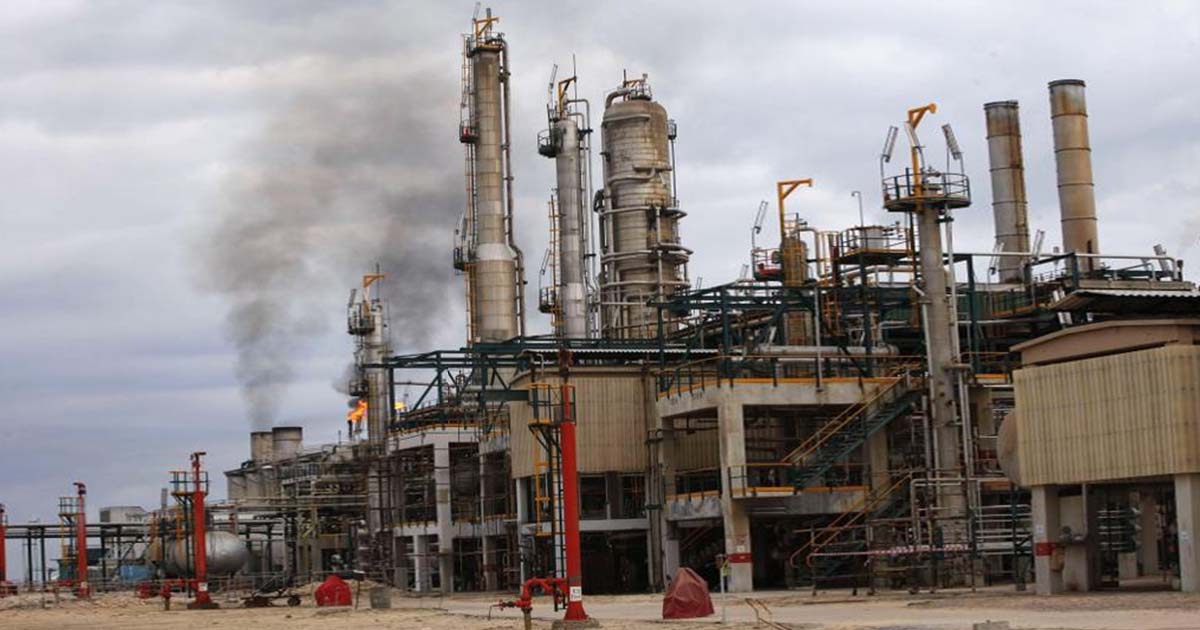On September 18, Vice Chairman of the Presidential Council of Libya, Ahmed Maiteeq announced that he had reached an agreement with the commander of the Libyan National Army (LNA), General Khalifa Haftar, to resume Libyan oil exports. That statement was also confirmed by Haftar – the LNA said it would lift the blockade on oil ports for a month.
Libyan oil: Some good news
In the current civil confrontation in Libya, Maiteeq represents the Government of National Accord (GNA), and is recognized by the US. Khalifa Haftar is a military leader loyal to the alternative government in Tobruk. The country is in a state of chaos and war against all after the 2011 NATO intervention and the overthrow of Muammar Gaddafi.
The agreement was welcomed by the National Oil Company (NOC), which began removing force majeure from oil terminals. As a result, oil prices on the world markets began to decline.
This is good news for oil consuming countries such as Pakistan, given the fact that Pakistan consumes 556,000 barrels per day, ranking 33th in the world, while producing only 88,261 barrels per day.
For Islamabad the news also highlights the possibility to resume talks on the participation in oil exploration in Libya.
Read More: As the Libyan conflict widens, ugly designs are unveiled
Cooperation between Libya and Paksitan
Last year Pakistani Ambassador to Libya, His Excellency Sajid Iqbal conveyed Pakistan’s desire to explore cooperation opportunities in the Libyan oil and gas sector, particularly with regards to seismic surveying and human resources development.
However, the agreement is no less important for Libya itself. During the blockade, the country lost $10 billion. In August and September, mass demonstrations were held in different parts of the country controlled by two competing governments – the Government of National Accord in Tripoli and the Provisional Government in Tobruk. People demonstrated fatigue from the war and dissatisfaction with the economic situation.
The Maiteeq-Haftar agreement now offers a chance for their problems to begin to be resolved: Libya’s economy is entirely dependent on oil sales.
The blockade of oil exports was caused by dissatisfaction with the tribes of East and South of Libya that supported the Khalifa Haftar’s LNA. They were outraged by the unfair distribution of oil revenues. The fields were on their lands, and the money went to Tripoli, including to the radical Islamists who controlled the country’s capital.
In January, at the Berlin International Conference on Libya, it was decided to promote fair distribution of income from oil trade. But real steps in this direction were never made.
And Ahmed Maiteeq, the only representative of the GNA, could find a compromise with Khalifa Haftar and representatives of other parts of Libya.
Read More: Turkey, Russia discuss Libya war ceasefire
Reinforced opposition Libya oil
Libya’s Supreme State Council, an advisory body to the GNA in Tripoli, did not recognize the agreement to open oil ports in the country. Its head, Khaled al-Mishri, who is close to the Muslim Brotherhood, did not hide his dissatisfaction. Several other influential field commanders also spoke out against him.
Mayteeq was not allowed into Sirte, where he was to formalize and sign an agreement with Haftar. The GNA deputy prime minister was also forced to leave a hotel in Misrata, where he planned to hold a press conference on the deal with Haftar.
However, opposition within the GNA did not stop the deal. Moreover, on September 24 in his address to the UN General Assembly the head of the GNA Fayez Sarraj declared:
“We have welcomed the political statements by the political leaders of Eastern Libya that called for ceasefire and resumption of oil production.”
Power struggles Libya oil
As a matter of fact, there were forces within the GNA that were ready to sabotage the most important solution for the country – and all this is only out of their self-serving interests.
The matter is that on September 16, Fayez Sarraj made a decision to resign before the end of October this year and transfer powers to new unified bodies of executive power which in prospect should be formed through direct inter-Libyan negotiations.
Read More: Libya cautions Egypt in wake of Sisi comments
Power struggles unfolded in the of GNA
Now, in addition to already mentioned Al-Mishri, Fathi Bashagha, Minister of Interior accused of torture and bloody suppression of mass disorders in Libya, is claiming Sarraj’s place. He came to the world’s attention in February, when he called on the U.S. to build a military base in Libya.
However, in addition to these two figures, there is also Ahmed Maiteeq, a respected politician on the international arena and within Libya with extensive business ties. For him, the deal with Haftar is a competent step towards the post of prime minister. Therefore, the counteraction to the deal – obviously beneficial to all parties to the Libyan conflict – is based on the fear that Maiteeq will use it to strengthen his position in Tripoli.
The world community is forced to see if the domestic political struggle in Tripoli will disrupt the peace process in the country and how it will affect the long-suffering world oil market.
The views expressed in this article are the author’s own and do not necessarily reflect Global Village Space’s editorial policy.













